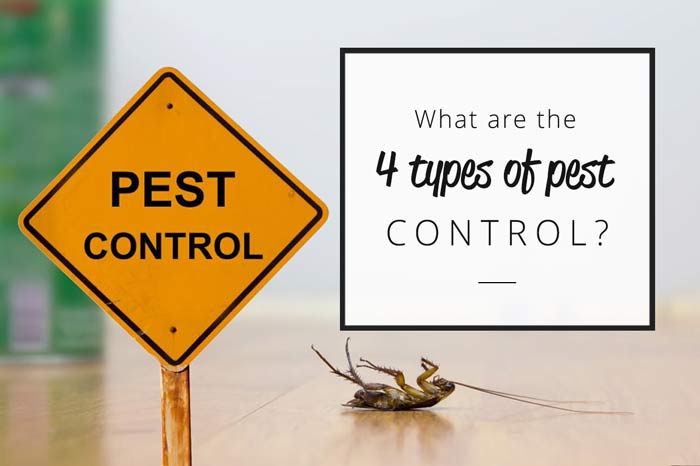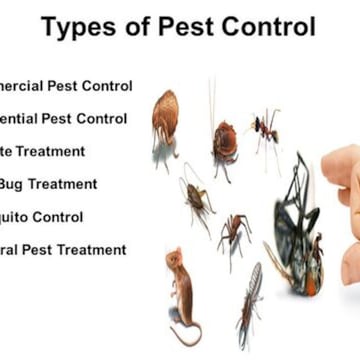All About Pest Control
Wiki Article
How Pest Control can Save You Time, Stress, and Money.
Table of ContentsA Biased View of Pest ControlFascination About Pest ControlExamine This Report about Pest Control10 Simple Techniques For Pest ControlThe Basic Principles Of Pest Control What Does Pest Control Do?
Our searchings for show that the initial analysis will certainly cost anywhere from $160-$300 on average. This generally costs anywhere between $400-$1000 for the whole year's protection, with regular monthly or bi-monthly sees already rolled right into the last price.Depending upon the problem, a work that requires a single see usually sets you back $300 to $550. These are the simplest rates to describe in your pest control costs list. Be certain to discuss to your consumer the process and the moment it will require to examine the situation. Throughout this first browse through, you may discover that the task calls for numerous extra brows through, at which point you can consider it a first check out.
Bugs that generally calls for recurring gos to include: Roaches. Our findings show that an initial go to is regarding $180 and is the very first of a continuous contract. During this first go to, you should: Assess the problem.
12-month contract. As a whole, the regularity of routine brows through is: On a monthly basis: $40 45. Every 2 months (semi-monthly): $50 60. Every 3 months (quarterly): $100 300. Bug control is a chemically-intensive service. Besides, chemicals are the essential materials that pest control operators make use of to finish a task. Common chemicals consist of: Boric acid.
10 Simple Techniques For Pest Control
Vital products and supplies you'll utilize consist of: Respirator. Your devices should be included as component of your overhead prices. If you have staff members, then labor expenses are going to be the greatest expenditures for your business.Limitations of Chemical Monitoring Be able to analyze pest problems, determine if management is required, and make proper suggestions making use of IPM methods. Be acquainted with different techniques of bug administration - their benefits and restrictions.
This phase reviews (IPM), a strategy that uses knowledge about parasites and their, techniques, nonchemical approaches, and chemicals to handle bug issues. Extra info about IPM for specific plants is consisted of in phases that focus on those plants. Nonchemical insect control steps are stressed in chapter 17, "Organic Gardening." Handling birds and mammals is covered in chapter 20, "Wildlife." Handling in the yard and yard is covered in phase 6, "Weeds." Insects in a yard or landscape might consist of pests and mites, weeds,, creatures, and birds.
Not known Facts About Pest Control
Many individuals rush to pull, hoe, or spray every weed they see. Bugs and weeds, nonetheless, play a role in the. After planting a yard or developing a lawn, the natural procedure of plant sequence starts to reestablish and nonnative plants. A weed growing in a yard stands for the first stage in a sequence of occasions that, if permitted to proceed, could eventually lead to a woodland.What we call "insects" are part of a natural system at work. Just human beings take into consideration particular varieties bugs when they happen where they are not wanted.
Insects prone to a pesticide were rapidly killed, leaving immune ones to reproduce and multiply. It ended up being clear that pesticides alone would certainly not address all bug issues. Instead, overuse of pesticides created the growth of immune insects. Scientists began to create a brand-new strategy to pest control. This brand-new strategy was defined as incorporated insect management (IPM).
An IPM plan allows some degree of insects in the environment. Parasites are much less likely to endure a program that makes use of lots of different methods of reducing their populaces. Integrated pest monitoring was very first suggested by entomologists since insects were the initial group of bugs to show hard to handle with chemicals alone.
Facts About Pest Control Revealed

Management as opposed to obliteration of bugs is the goal. An IPM strategy begins with a mindful examination of each insect infestation. Just then can one decide concerning the proper tactics essential to subdue insect tasks. The life process of the pest, feasible damage, all-natural opponents, and effects of weather condition, among various other aspects, are considered prior to a control plan is implemented.
Clover growing in a grass might be watched as an unwanted weed, yet as a vegetable it is manufacturing nitrogen for the soil and the blossoms are giving nectar to honey bees and other. Resistance for some weeds might be part of an IPM plan. might be consuming the fallen leaves of a plant, but when they are identified as the larvae of Eastern tiger swallowtail butterflies, their damage might be endured so click resources we can enjoy the stunning butterfly.
Number 81. Brownish lacewing larva (Hemerobiidae family). Pest Control. Matt Bertone Prevention is webpage the first tool in insect administration due to the fact that it is one of the most reliable, the very least expensive, most ecologically pleasant option. Picking a healthy plant that thrives in the preferred place with the offered light, growing it meticulously, and making certain that it has sufficient water and nutrients avoids anxiety and decreases parasite troubles.
The Facts About Pest Control Uncovered
The 2nd crucial tool in parasite administration is very early treatment. Existing and watchful in the yard makes certain very early detection. Reacting to troubles swiftly, prior to they have time to multiply, calls for a less remarkable intervention. The third most important tool is recordkeeping; tracking what takes place in the garden makes it possible for a gardener to identify patterns and make informed decisions.Several safe, functional, nonchemical approaches of plant defense and parasite management may minimize or get rid of the demand to spray. Other techniques are most beneficial when utilized with pesticides. To apply monitoring practices correctly and to lessen losses, garden enthusiasts must know the types of pests that attack plants and understand pest biology.
Bug monitoring approaches fall into four groups: cultural, mechanical, biological, and chemical. Keeping plants healthy and stopping plant stress helps plants to better endure and repair the damage triggered by a bug or mite bug. Some evidence suggests that healthy plants withstand invasion by insects much better than plants with low vigor.
Carrying out a soil test and applying only the suggested quantity of plant food and lime optimizes the advantage to the plant while minimizing problems associated with too much use of plant food. Treatment the soil with a number of inches of mulch protects the plant in numerous means: minimizing soil water loss to evaporation, minimizing weed competitors, supplying nutrients, and producing a suitable environment for earthworms and bacteria that keep the soil loosened for roots and break down natural material to launch nutrients.
Pest Control for Beginners

If tilling is considered essential, think about doing it in the autumn when the life cycles of lots of pests brings them near the surface. At the surface, pests become exposed to the weather condition as well as birds and other all-natural opponents.
Report this wiki page